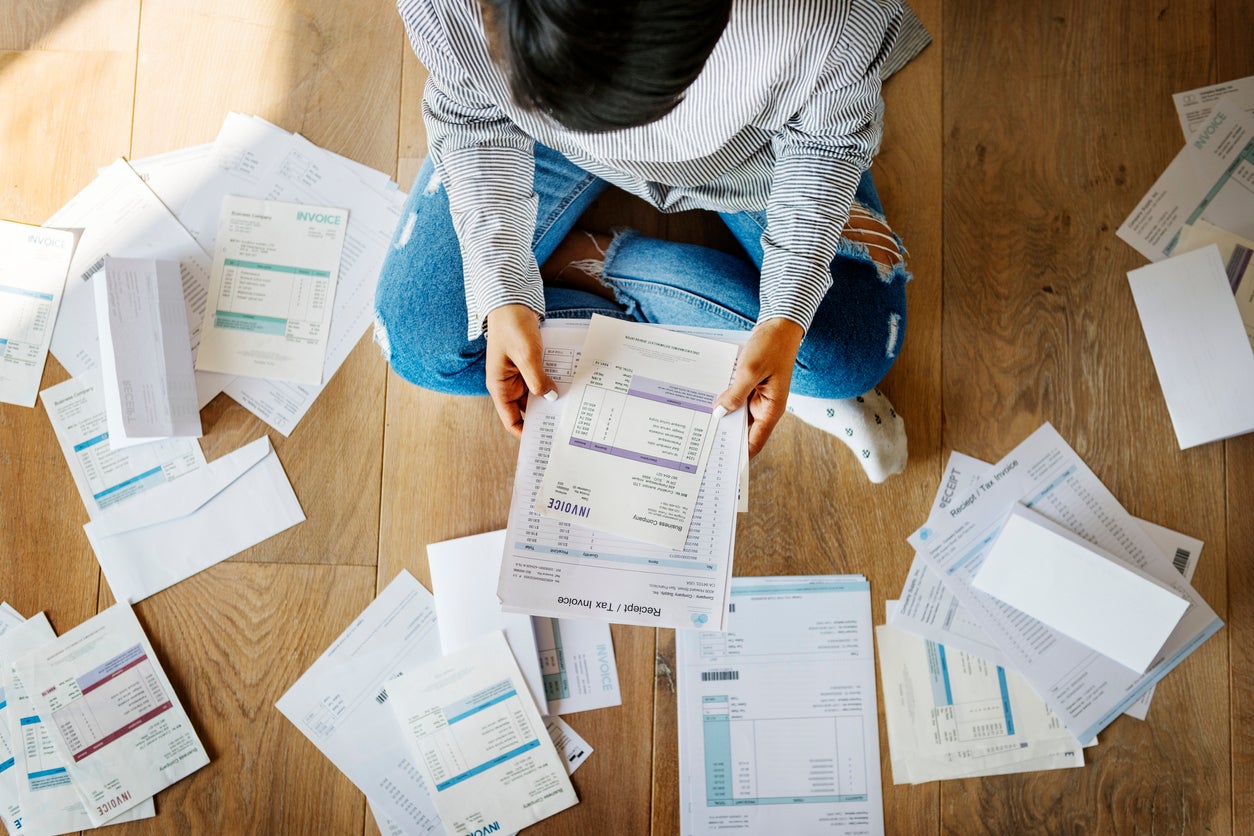Jump in personal debts to government prompts warnings over recovery
Fears grow over vicious cycle as consumers fall behind on council tax and other bills

The covid-19 crisis may have driven more people into debt but it has also focused attention on how creditors treat their struggling customers.
People with existing debt and those who entered debt because of the crisis received a lot of attention in 2020. They were given the right to apply for repayment holidays on their mortgages and other debts, while lenders were asked to show forbearance as debtors struggled with a sometimes rapidly changing debt picture.
And just in the last few weeks another change has been announced. The Financial Conduct Authority is going to begin regulating the buy now, pay later sector, after concerns that shoppers were able to build up unseen debts of as much as £1,000.
Yet that is just debt owed to commercial lenders. There’s another area of debt that has rapidly grown during the pandemic and is causing alarm among some charities.
Anatomy of debt
In the three months to the end of June last year, councils reported an increase of £500m in council tax arrears. According to Citizens Advice, that suggests at least 1.3m households had already fallen behind in their payments by the summer.
In the current climate, this can lead to a rapidly escalating debt situation. A report from the charity warned: “When people fall behind on their council tax it can be a catalyst for further debt problems. Due to the way council tax is recovered, people are often pushed further into debt and face poor treatment by bailiffs.”
Commonly, when a bill payer falls behind on their council tax payments, they no longer have the option to pay it over a 10-12 month period, but have to pay the full amount within a very short period of time.
According to Citizens Advice, when court fees and bailiff costs are added to that, it means that someone paying the average amount of council tax for a Band D property can see the amount they owe jump from £167 to more than £2,000 in just nine weeks.
There are also concerns from some organisations about how universal credit advances are repaid and whether that pushes recipients into financial difficulties.
Claimants can apply for an advance to universal credit to get them through the initial five-week wait, and that amount is then deducted from their monthly payments. Analysis from the Child Poverty Action Group (CPAG) shows that 1.85 million of all universal credit claimants are having deductions from their benefits, and 87 per cent of those deductions include repayments of an advance.
CPAG’s analysis shows the average deduction is £140 per month.
Then there’s the likelihood of a rise in outstanding income tax. Research carried out by IPSE, the Association of Independent Professionals and the Self-Employed, suggests that over a third of freelancers are worried about paying their tax bill because they have been affected by the economic crisis.
There are measures in place to help such freelancers – they can spread payments across the year, and HMRC has also allowed tax returns to be filed up to a month late without charges. But IPSE claims that 48 per cent of freelancers hadn’t heard that help was available.
Of course, very few people will be in just one kind of debt. One study carried out by the Resolution Foundation found that over three in 10 people who began claiming universal credit after the pandemic began have either built up new debts or have increased the amount of their existing debt.
Fair outcomes
This is an area where the government is proactively open to updating its practices. The Cabinet Office recently put out a call for evidence on how it could “deliver fair debt outcomes for all”, and stated that it needs to make sure that the right balance is struck. On the one hand, it must robustly tackle people who have defrauded the public purse, and ensure that people who can afford repayments are incentivised to make them.
But it also wants to examine possible ways to reduce “the physical and mental impact of debt recovery on those who are vulnerable or in financial hardship”.
Joanna Elson CBE, chief executive of the Money Advice Trust, the charity that runs National Debtline and Business Debtline, says there are concerns over current government debt collection practices.
“The way in which central government and local authorities collect debts requires urgent reform – particularly in the wake of Covid-19,” she urges. “The government’s intention to bring forward improvements is welcome – and with more and more people struggling to repay debts owed to government even before the coronavirus crisis hit, there is no time to waste.”
Appetite for change
Ben Faulkner from EQ Investors believes there’s growing demand for extra help. He says: “Over Christmas, Labour in Scotland were calling for outstanding debts on household bills and council tax to be suspended. Even in the US, the Biden administration is considering action on student debt relief.
“The severity of the effects on household finances is likely to increase, so you’d expect to see further help. The government has just launched a consultation aimed at extending debt solutions and helping vulnerable people in financial distress get a fresh start.”
Subscribe to Independent Premium to bookmark this article
Want to bookmark your favourite articles and stories to read or reference later? Start your Independent Premium subscription today.

Join our commenting forum
Join thought-provoking conversations, follow other Independent readers and see their replies